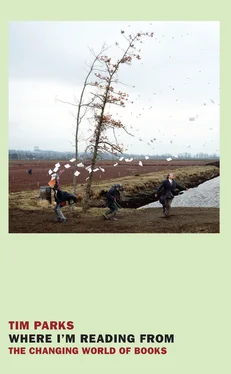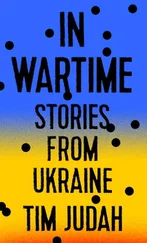I am struck by this thought: had the movie been made by a British or American company and the original scenario—Cleaver versus Bush—been retained, or perhaps moved to an American rather than British setting, European viewers would have had no problem picking up a London or, say, Washington backdrop. They would immediately have recognized the American president and appreciated what was at stake. All over the world, people have seen so many American and British movies that even the milieu would have been superficially familiar. Many of them would have had no problem watching the movie in English, and watching a movie in a foreign language always leaves one feeling pleased with oneself for having acquired that language. In other words, the simple fact that I’m British, from London, with a familiarity with that milieu—Cleaver himself is based on a London journalist I know well—gave my novel a more global potential. It could have worked in Germany without these changes.
However, in order to get public funding, the Austrian filmmakers had to set the work in German-speaking Europe, indeed largely in the Tyrol (the Austrian, not the Italian Tyrol). And anyway they no doubt and very rightly feel far more at home making the work local and specific to their community, since as I have said it is to be broadcast on TV and not, so far as I know, released in cinemas around the world. As a result they have made a product that even if dubbed would not so easily appeal to an international market. My feeling is that the producers have done absolutely the right thing both aesthetically and given the production situation in which they must operate. But the megalomaniac Parks would have preferred his name in cinemas across the globe.
The strangest transformation, though, comes with the Tyrol. The protagonist of the novel is a man from a familiar, highly nuanced London setting, the center, as the British see it, of Anglo-Saxon news media—London interiors, London furniture, recognizably London banter. He is shifted to a place that is essentially, nowhere, a mountain waste, in late fall, people who are quite incomprehensible (the novel—a medium made up of words—has unexplained lines in South Tyrolese dialect); interiors that are generically antique, peasant, and Teutonic. It’s so disconnected from everything Cleaver knows that he struggles to see it as anything but caricature, struggles to understand that the few people he meets are indeed real people with real lives who, despite not being at the center of the media world, deserve attention and respect.
Instead and inevitably, for German and Austrian viewers, the Alps, the Tyrol are very much part of their familiar world and mental landscape. Cliewer has no trouble understanding people there, and indeed barely a day or two after his arrival, a local newspaper has his photo on the front page, so everyone recognizes him. This introduces whole areas of reflection and perhaps significant German material that could not be in my book. This may make the film a richer experience for the German public, at least in this sense, though it entirely sacrifices the drama of Cleaver’s not only going somewhere very remote, but above all divesting himself of his main strength, his language.
I watch the film unfold with a mixture of admiration, bewilderment, and, for purely selfish and private reasons, disappointment. My potentially global work has been made local. It is now locked into Germanic culture. It portrays the German media world, a distinctly German sensuality, a concrete Tyrolese. Well, haven’t I written frequently in admiration of the artist happy to engage with his local community and ignore the global? Indeed I have. But this local is not my local. And of course, thanks to the complex laws of film rights and copyright, something else I have recently expressed a few opinions about, it will now not be easy for English or American producers to make their own version of the film. Like it or not, Cleaver, Cleaver , really has expatriated. He’s Cliewer now.
TIM PARKS has written seventeen novels, including Europa , which was short-listed for the Booker Prize, and most recently, Painting Death . He is the author of several works of non-fiction, including Italian Neighbors and Italian Ways . Parks has also translated the works of Alberto Moravia, Giacomo Leopardi, and Niccolò Machiavelli, among others, and he is a frequent contributor to The New York Review of Books and the London Review of Books . He lives in Italy.












